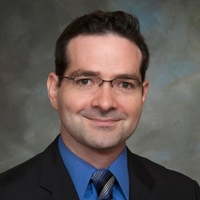Where do you currently live?
Mountain View, CA
What is your current occupation?
Technology Attorney
What school did you attend while participating in NHD?
Joplin High School, Joplin R-VIII Schools (Joplin, MO)
What college did you attend?
Massachusetts Institute of Technology and Boston University, BS EECS, Masters EECS, Law Degree
Who were your teachers?
Andy Ritter, Janet Myers
What years and in what category did you participate in NHD?
1994-2000, performance, paper, exhibit
What are a few of your favorite or defining moments from your NHD experience?
For a relatively introverted kid focusing on the sciences, performance and oral presentation provided a valuable contrast. Reaching out to relatives of historical figures, the figures themselves, and historians was also humbling and perspective orienting for a teenager.
How did NHD help you after high school?
Participation did not immediately influence my interests / problem solving approaches. But the exposure laid the seeds so that later in life, the potential for “rigorous non-quantitative” research was on my radar. I think a lot of my technical peers felt confined to the sciences for that reason, whereas I had a broader horizon.
What recognition did you receive for participating in NHD?
Arvarh E. Strickland African American History Award, Missouri’s National Award for Outstanding State Entry, 7th in the Nation in my category
Did you do anything with your NHD project or research after the contest year?
I presented my projects and performances at local forums and events after the competition ended.
What has kept you busy since your days as an NHD student? Any particular challenges, stories, or achievements?
I have twin passions in the sciences and in the humanities, so technology law is a natural fit. It wasn’t an easy path to realize, though, and I’m very sympathetic to students navigating their way through similar waters. Today, there is a strong push for STEM education. I served on the board of a STEM charity and stay involved with various robotics groups. But I think the “either/or” proposition of the “trivium” and “quadrivium” does students a disservice. Too often I see young professionals with prestigious degrees, products of that rigorous division, who think their education has ended rather than just begun. Programs like NHD are very important because they encourage a taste for that extracurricular self-education at a young age. Even if students pursue NHD merely to check off a college-application “checkbox” in these competitive times, they’ll still encounter other students, researchers, historical figures, and ideally, the passions of each.
Is there anything else that you would like to share about your NHD experience?
In 1995 the theme for NHD was Conflict and Compromise in History. I did an individual performance that year portraying Desmond Doss—the soldier “who wouldn’t carry a gun,” but who received the Congressional Medal of Honor from President Truman. I contacted Mr. Doss to learn his story firsthand, and he was very helpful – sending me information, books, pictures, and a signed copy of his citation. Mr. Doss died in 2006, well before Hacksaw Ridge brought him to more public awareness. It’s fascinating to see people react to the movie and contrast it with the preceding humble, matter-of-fact interaction. I’m very grateful I had the chance to have a more personal encounter with his story.

